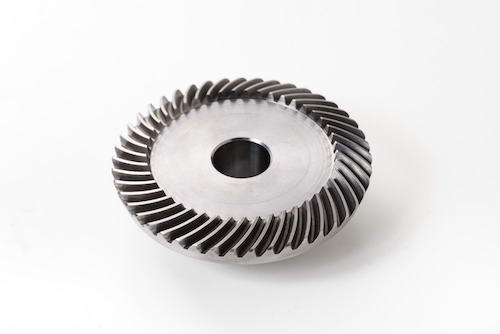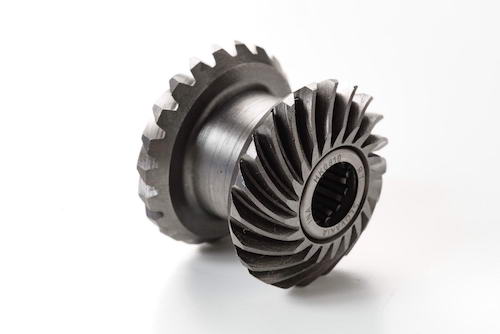Gears play a crucial role in mechanical systems, transmitting power efficiently and ensuring smooth operation. When selecting gears, one major decision is whether to use standard gears or opt for custom-designed solutions. This article explores the differences between these two options, their advantages, and how to determine the best choice for your application
Standard vs. Custom Gears: A Detailed Comparison
Definition and characteristics:
Standard Gears
These are gears available in the lineup of gear manufacturers. They are standardized and stocked by manufacturers as off-the-shelf products. Various sizes and materials are available to accommodate a wide range of applications.
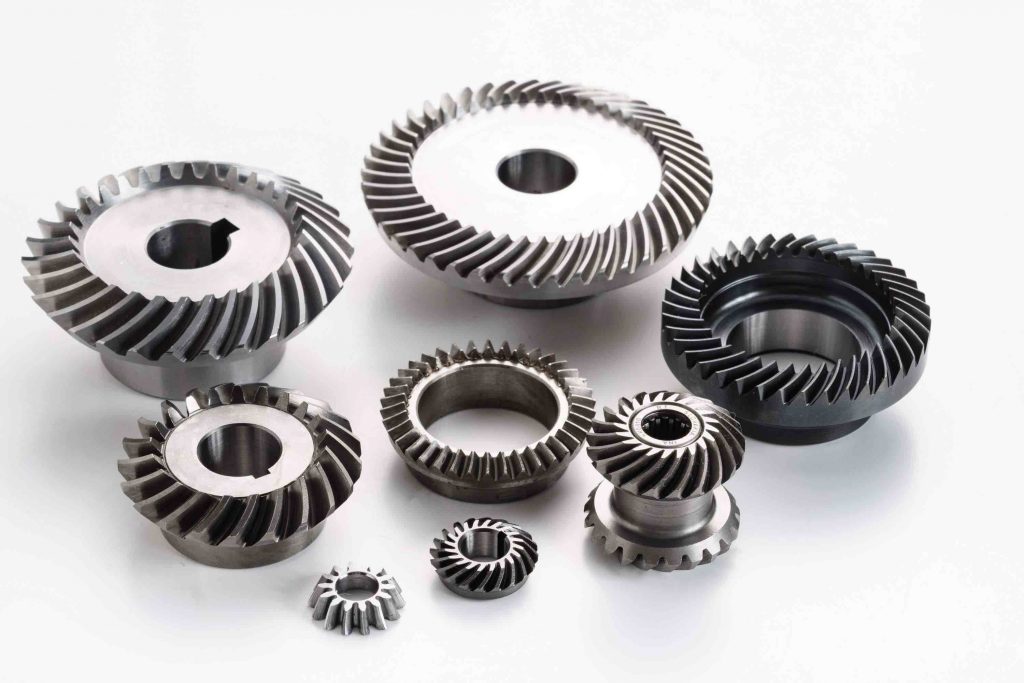
Custom Gears
These are specially designed and manufactured gears to meet the specific requirements of customer equipment. Dimensions, materials, tooth profiles, and performance characteristics are customized according to customer needs.
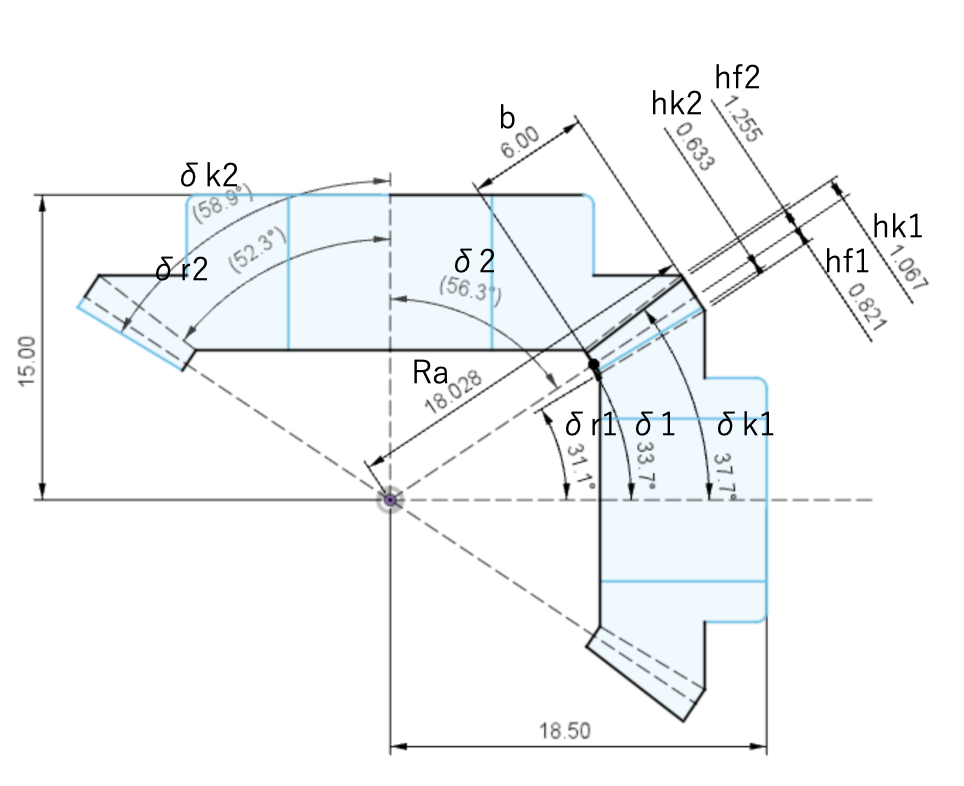
Common types and applications
types
The types of gears are as follows.
Spur Gears: The most common type, used for transmitting power between parallel shafts.
Helical Gears: Provide smoother operation and reduced noise due to angled teeth.
Bevel Gears: Used for transmitting motion between shafts that intersect at 90 degrees.
Worm Gears: Offer high reduction ratios and self-locking properties.
The following specifications can be customized:
- Module
- Number of teeth
- Pressure angle
- Mesh angle (pitch angle) *For bevel gears
- Lead angle *For cylindrical worm gears
- Number of starts (worm threads) *For cylindrical worm gears
- Face width
- Material
- Heat treatment
- Surface treatment
- Shaft fitting shape
- Backlash
- Presence or absence of profile shift
In particular, standard gears are generally not profile-shifted. Custom gears can be profile-shifted, allowing multiple gears with different speed ratios to be used while maintaining the same center distance.
applications
Here are some examples of industries where each type of gear is used:
| Industry | Spur Gears | Helical Gears | Bevel Gears | Cylindrical Worm Gears |
| Automotive | Transmission | Power Steering | Differential | Wiper Motor |
| Industrial Machinery | Conveyor Drive | Hydraulic Machinery | Crane Drive | Lift Mechanism |
| Robotics | Joint Drive | High-Precision Drive | Direction Change | Low-Speed High-Torque |
| Machine Tools | Spindle Drive | High-Load Drive | Tilting Mechanism | Lead Screw |
| Medical Equipment | Surgical Instruments | MRI Drive | Small Surgical Robots | Fine Adjustment Mechanism |
Cost
Standard Gears: Mass production makes them cost-effective, as they require no additional customization or engineering.
Custom Gears: Higher costs due to specialized design, tooling, prototyping, and unique material selection. However, they can improve life and reduce maintenance costs over time.

Lead Time
Standard Gears: With a certain level of stock available, they can be obtained immediately after ordering. Compared to custom gears, they have a relatively shorter lead time, helping to prevent lost orders due to long delivery times.
Custom Gears: Compared to standard gears, additional time is required for design. If materials not covered by standard gears need to be procured or if more precise machining is required, the lead time will be longer than that of standard gears.

Performance & Efficiency
Standard Gears: Provide reliable performance in many applications but may not always be optimized for specific requirements.
Custom Gears: Can be designed for maximum efficiency, reducing energy loss, noise, and vibration while improving operational accuracy.

Durability & Lifespan
Standard Gears
Durability
Standard gears are designed for general applications and manufactured using standardized materials and processes. Their durability depends on the material used (e.g., steel, brass, or plastic) and the manufacturing quality, but they may not be optimized for extreme conditions.
Lifespan
Since they are mass-produced with general tolerances, their lifespan is suitable for common industrial use but may be shorter if used in high-load, high-speed, or specialized environments.
Custom Gears
Durability
Custom gears can be designed with enhanced durability by selecting high-strength materials, applying special coatings (e.g., heat treatment, surface hardening), and optimizing the tooth profile for reduced wear. This makes them more resistant to heavy loads, high temperatures, and corrosive environments.
Lifespan
Due to their precision manufacturing and tailored specifications, custom gears often have a longer lifespan compared to standard gears, especially in demanding applications. Proper customization can minimize wear and ensure stable performance over an extended period.
Design Flexibility
Since standard gears have predefined specifications, they may not always be compatible with the equipment in which they are installed. If the equipment specifications can be adjusted to match the standard gear, it is ideal; however, when multiple types of gears need to be installed in the same equipment, standard gears may not always be suitable. In such cases, choosing custom gears allows for the design of multiple gear patterns that match the installation conditions of the equipment. This helps reduce equipment costs while ensuring the use of durable gears.
Choosing the Right Gears for Your Needs
When to Choose Standard Gears
- When cost-effectiveness and immediate availability are top priorities.
- When the application does not require specialized design or performance characteristics.
- When using standardized components simplifies maintenance, replacement, and system integration.
When to Choose Custom Gears
- When the application demands high precision or unique design requirements.
- When performance, efficiency, or durability are critical factors.
- When integrating gears into specialized machinery with non-standard configurations.
Narutaki's Tailored Gear Solutions
At Narutaki Industries, we specialize in producing high-quality custom gears tailored to your exact specifications. Our advanced manufacturing capabilities and commitment to quality ensure that we deliver the best solutions for your needs.
Our Capabilities
5-axis Machining Center
Our cutting-edge 5-axis machining technology enables the high-precision manufacturing of complex gear shapes, ensuring optimal performance. We can accommodate gears up to 6 inches in size.
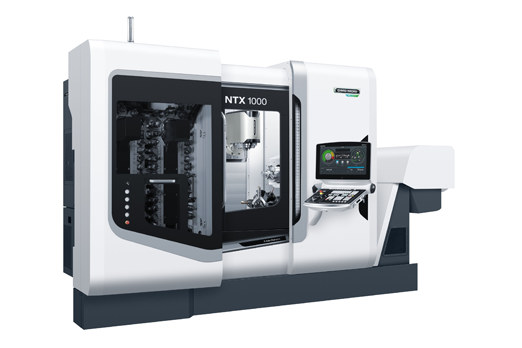
Comprehensive quality control
We adhere to rigorous inspection protocols, utilizing advanced measuring instruments to guarantee accuracy, durability, and reliability in every gear we produce.
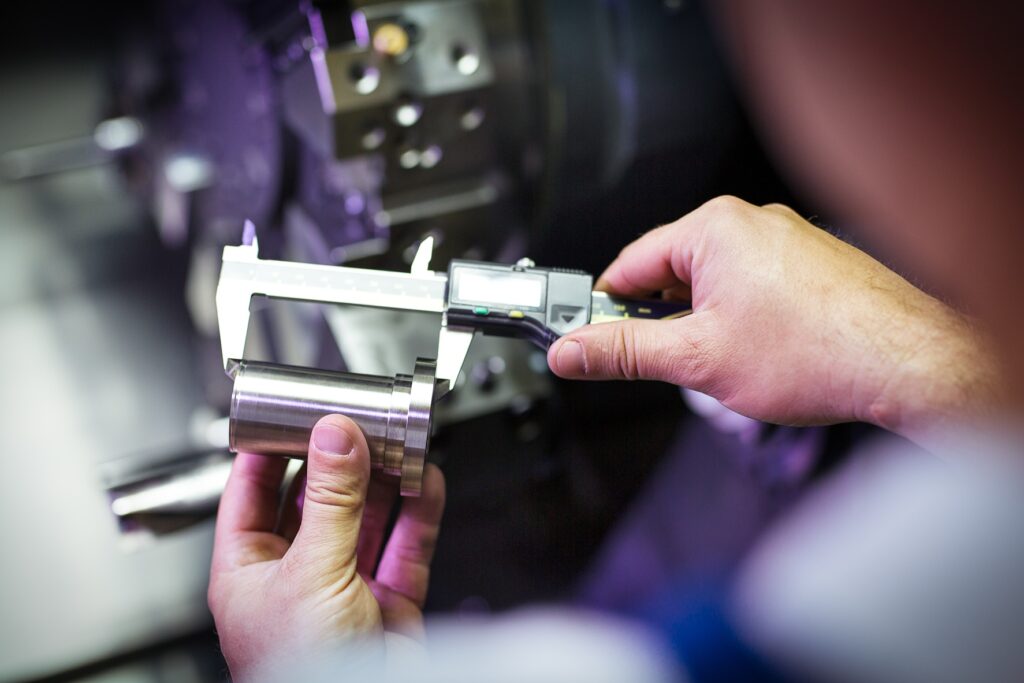
Small lots to Mass production
From prototype development to full-scale production, we offer flexible manufacturing solutions to meet various industry demands.
Prodcut Samples
We provide custom gear samples for evaluation, allowing clients to assess performance, compatibility, and durability before committing to bulk production.
Plastic

Contact Us
For expert guidance and tailored gear solutions, reach out to our team at Narutaki Industries. Let us help you find the perfect gear for your application!


